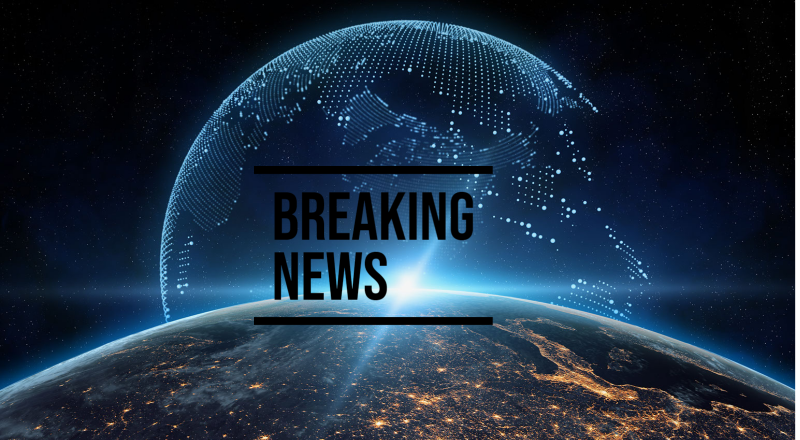With Israel now carrying out its promised attack on Rafah, the looming question is: Will Gaza ever get a much-needed respite from non-stop explosions?
Israel’s military carried out air strikes in eastern Rafah, Gaza Strip on Tuesday after ordering Palestinians to evacuate ahead of a ground invasion. The directive was conveyed through flyers, phone calls, messages, and Arabic media broadcasts. With hopes for a new ceasefire in the seven-month Israel-Hamas conflict once again dashed and Israel now carrying out its promised attack on Rafah, the looming question is: Will Gaza ever get a much-needed respite from non-stop explosions?
During an exclusive interview with Hindustan Times, Ian Bremmer, president and founder of the geopolitical risk firm Eurasia Group, discussed the US’ efforts in mediating a truce deal between Israel-Hamas, the potential ramifications of Netanyahu’s Rafah attack, Iran’s involvement in the crisis, Hamas’s perceived disregard for the plight of Palestinians, and the prospects of recovery for Gaza.
Edited excerpts:
“Rafah invasion is inevitable”
Israel has claimed that terrorist activities are being carried out on the Palestinian side of the Rafah border. Therefore, gaining control of this border is seen as a crucial strategic goal, as it enables Israel to regulate the main gateway to and from Egypt.
Highlighting the reasons why the Israeli government views the Rafah invasion as unavoidable, Bremmer remarked, “The US has delivered an ultimatum to Benjamin Netanyahu saying that there will be strong consequences if they proceed with such a war. But I do believe that some form of military operation is inevitable because this isn’t just about Netanyahu or the war cabinet, but rather the entire Israeli population. They believe that Hamas is responsible for civilian deaths due to their operations in civilian areas and holding hostages. Therefore, most Israelis support continued military strikes until Gaza’s military infrastructure is destroyed, Hamas leadership is neutralised, hostages are freed, and fighters are removed.
Why did truce talks fail?
Several aid organisations have warned that the Rafah attack would bring a surge of civilian deaths in the Israeli campaign that in nearly seven months has already killed 34,000 people, exacerbated the humanitarian crisis in Gaza, and devastated the region.
Deliberating on the US’ failed attempt to contain the war, Bremmer said, “This is a really challenging policy decision for the US President. Almost no other country supports the US position in the war. Most US citizens increasingly want a ceasefire, including young people and Democrats. But Biden has certainly tried very hard to prevent the Israeli war cabinet from launching a ground invasion in Rafah, worrying that it’s going to be a bloodbath perhaps even worse than what we’ve seen over the last seven months.”
“At the same time, Biden is also striving to secure the release of hostages held by Hamas, most of whom are civilians, illegally detained and tortured. But Hamas refuses to budge despite the efforts and the negotiations. Therefore, it is almost impossible to get a temporary ceasefire unless there is a breakthrough,” Bremmer added.
“Israel, US’ reluctance gave us October 7”
Hamas had agreed to a three-phase ceasefire and hostages-for-prisoners exchange on Monday. However, Israel rejected the deal, saying it was not acceptable because its terms had been “softened”. The proposal involved releasing 33 hostages in the first 42-day phase, while Israel would release Palestinians from its jails and partially withdraw troops from Gaza. Phase two would entail a complete halt to military activity, followed by the exchange of bodies and the implementation of reconstruction overseen by Qatar, Egypt, and the UN in phase three.
Discussing the potential long-term political solution to the conflict, Bremmer said, “It’s very helpful to have the US, the Gulf states, and Israelis, recognise that we need to have a solution for the Palestinians. However, the Israeli government’s reluctance to cease military actions and the PM’s rejection of a two-state solution is hindering the process. So, we must first get to a point where a permanent ceasefire can be declared, and we also need the Israeli PM out of office. Honestly, I can’t see any peace when the sitting leader of Israel refuses to accept a two-state solution.
“Iran’s role in the war has been as the leader”
Iran has supported both Hamas and the Palestinian Islamic Jihad (PIJ) with financial aid, weapons, and political backing. Iran’s first direct attack on Israel with 300 drones and missiles was reportedly in response to an Israeli airstrike on the Iranian consulate in Damascus, Syria, which resulted in the deaths of senior military commanders. Prior to this, Israel and Iran have engaged in a years-long shadow war, targeting each other’s assets without officially acknowledging responsibility. These attacks have intensified considerably during the ongoing Gaza conflict.
Discussing Iran’s potential to get directly involved in the war, Bremmer said, “Iran’s role in the war has been as the leader, the funder, the trainer of the so-called called axis of resistance, and a number of organisations in Syria, Iraq, Yemen, Lebanon, in the occupied territories, and now apparently Bahrain as well, which do not recognise the right of Israel to exist.”
“They are considered terrorist organisations by Israel and by the US and Iran is providing them with money and weapons and intelligence. So, as long as that continues, the potential for Iran to get directly involved in the war is high. I mean, they are clearly, you know, they’re waist deep in a proxy war, in a number of proxy wars across the Middle East.
“So, after the Israelis engaged in direct strikes against an Iranian government building in Damascus, Iran hit Israel back with over 300 missiles and drones directly on its territory. Now fortunately most of them didn’t get through but that was a big risk for the Iranians to take. If the attack had been more successful, which the Iranians were clearly hoping for, then the Israelis would have responded with a much more significant military engagement and we could be talking about the Straits of Hormuz disrupted, and the US in a war against Iran.”
Netanyahu wants Trump back despite the latter’s ‘PR war’ rhetoric
Former US President Donald Trump recently commented during an interview with conservative radio host Hugh Hewitt that Israel is “absolutely losing the PR war” and urged for a swift end to the violence. He offered a tough message to Israel regarding its conflict with Hamas, advising the country to “get it over with.”
Moreover, the Biden administration’s decision on March 25 to not veto a United Nations Security Council resolution advocating for a ceasefire in Gaza intensified the strain between the Biden administration and the Netanyahu government.
Shedding light on the potential outcome if Trump were still the president, Bremmer suggested that the events of October 7 and the subsequent conflict might have been avoided.
“Netanyahu wants Trump to win. See, Biden, who is the elected president of the most powerful country in the world, has the Israeli PM walking all over him. He demanded a two-state solution, and Netanyahu said no. He demanded a halt on any plans for a ground invasion in Rafah, and Netanyahu said, “I’m gonna do it no matter what”.
“Now, Netanyahu is the same leader that the US citizens have just committed $17 billion of additional military aid to? This is the same leader who is accountable for the killings of hundreds of aid workers, including US citizens, in Gaza, over the past months. He’s the same leader who has refused to allow humanitarian aid (in Gaza),” Bremmer said.
While Trump’s stance on the war remains unclear, his actions as president unequivocally supported Israel. During his presidency, Trump relocated the US embassy from Tel Aviv to Jerusalem and acknowledged Israel’s control over the Golan Heights, in a reversal of longstanding US policy.
Emphasising Israel’s preference for Trump, Bremmer explained that he is a “huge friend” of Israel. The ideological orientation of Trump is very much towards the far right and towards Netanyahu’s support base. “After all, it was Trump that moved the US embassy from Tel Aviv to Jerusalem. It was Trump who has been instrumental in getting the Abraham Accords done, normalising Israeli relations with several Arab states. So, at the end of the day, there’s no surprise that the Israeli government wants Trump,” he added.
“Hamas treating Gazans as expendable for political goals”
Hamas has repeatedly expressed concern about the suffering of Gazans, condemning the Israeli attacks as systematic violence targeting Palestinian civilians, particularly women and children.
However, Bremmer feels that there’s no justification to believe Hamas has “any concern about civilians”. Hamas, according to him, sees civilians as expendable for their political goals, similar to how they treat Israeli civilians.
“I don’t think anybody in the world today can say that Hamas does not bear responsibility for civilian deaths in Gaza. Of course, Israel is also responsible. But I happen to think that Hamas is more responsible. So, a ceasefire is required precisely for that reason. And furthermore, an immediate release of the hostages is required,” he stated.
Will Gaza ever recover?
Even if Israel and Hamas agree to a cease-fire and maintain it, experts predict that Gaza will not return to normalcy anytime soon. Amid the rise of antisemitism and Islamophobia, actions and words hold significant weight. However, opinions on the Israel-Gaza conflict remain polarised, extending from public spaces to cultural realms, sparking protests and inevitable backlash.
Stressing the bleak prospects for Gaza’s recovery, Bremmer commented, “I don’t think Gaza will recover in the near future. I think, in the last seven months, there has been a radicalisation of a generation of Palestinians against Jews and vice versa. That’s going to lead to a lot more violence, a lot more hatred.
“Despite all its efforts to target every last member of Hamas and its military capabilities, Tel Aviv will end up with much more anti-Israel radicalisation because of the war than it would have if it had fought it in a much more restrained way.”
Get Current Updates on India News, Elections 2024, Lok sabha election 2024 voting live , Karnataka election 2024 live in Bengaluru , Election 2024 Date along with Latest News and Top Headlines from India and around the world.
Continue reading with HT Premium Subscription

IPL 2024 Coverage
This post was originally published on 3rd party site mentioned in the title this site












